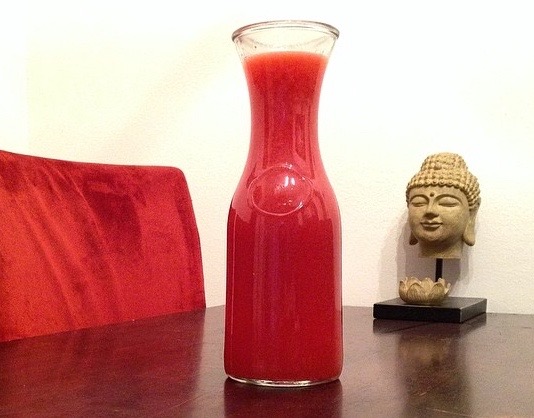One of the first things I suggest to my clients who are struggling with stress, hormone imbalance, and autoimmune/inflammation issues is to understand the crucial roles that sleep and nutrition play in managing or reversing symptoms. One way to regain hormonal balance is to understand the importance of maintaining healthy levels melatonin and glutathione by optimizing the sleep cycle and eating foods that support the production and absorption of these hormones.
Melatonin is a hormone that is responsible for regulating our circadian rhythm (sleep cycle), and producing serotonin (a hormone that helps us feel calm, balanced, and happy). Without adequate sleep, melatonin levels becomes depleted. When melatonin is depleted, serotonin is also depleted, which allows our “fight vs. flight” hormones (adrenaline, dopamine, and norepineprhine) to take over. When these hormones are running the show, we tend to struggle with anxiety, poor response to stress, insomnia, teeth grinding, sweating, and ultimately: adrenal fatigue and thyroid dysfunction. In addition, when we don’t produce enough melatonin, glutathione cannot be released into the body. Glutathione is the most powerful antioxidant that our bodies make, and without it, free radicals can start to take over. This causes mutations to our cells and DNA, impairs the ability of our immune system to fight off infections and illnesses, and ultimately leads to more serious long-term issues such as cancer and neurological damage/impairments.
Poor nutrition (not getting ENOUGH nutrients or eating foods that cause inflammation or autoimmune responses) also depletes melatonin and glutathione. As you can see, there is a delicate and intricate interplay between these hormones and antioxidants, and imbalances can lead to a destructive cycle of sleep loss, poor absorption of nutrients, and hormonal/neurotransmitter imbalance.
Supplements will only get you so far, so getting nutrients from whole foods needs to be a strong priority and course of action. Oral glutathione supplements (look for a brand that says “GSH-reduced Glutathione) can be helpful, but eating foods that support the production of glutathione and melatonin is much more effective and sustainable. Glutathione is more easily released in the body when NATURAL melatonin is present in the body. Synthetic melatonin can also have undesirable side effects, such as morning fatigue and nightmares.
So, how do you start the process of replenishing glutathione and melatonin levels naturally?
1. Get more melatonin!
Snack on some tart cherries. They are the ONLY source of melatonin that occurs naturally in food. Studies have found significant increases in melatonin levels between treatment and baseline/placebo groups after consuming tart cherry juice. The length and quality of sleep were also improved. (Howatson, et al., 2011)
2. Allow your body to PRODUCE more of its own melatonin by ditching the tv, computer, or phone 1-2 hours before bed time. These all emit blue light, which suppresses the production of melatonin. In contrast, red light helps stimulate the production of melatonin, and some people find it helpful to use red tinted lightbulbs in bedside lamps.
3. Eat more foods containing vitamins/minerals that are cofactors in glutathione synthesis:
-Vitamins C, E, B1, B6, B9 (folate, NOT folic acid, which is the synthetic form), and B12
(Leafy greens!)
-Selenium (Brazil nuts, sunflower seeds, brown rice)
-Magnesium (Brazil nuts, spinach, squash, pumpkin seeds, almonds)
4. Practice yoga and Ujjayi breathing:
Ujjayi breathing helps decrease cortisol levels, which often spike in response to stress, inadequate sleep, and hypoglycemia. Cortisol also triggers the neurotransmitters in the body that act as stimulants (norepinephrine, adrenaline, dopamine), which surpasses the production of calming neurotransmitters, such as melatonin and serotonin. Elevated cortisol levels often go hand-in-hand with adrenal fatigue, and can lead to anxiety and insomnia. Yoga and Ujjayi breathing (deep breathing) have been shown to stimulate the synthesis of glutathione, decrease cortisol levels, and improve the quality of the sleep cycle and stress response (Brown & Gerbarg, 2009).




